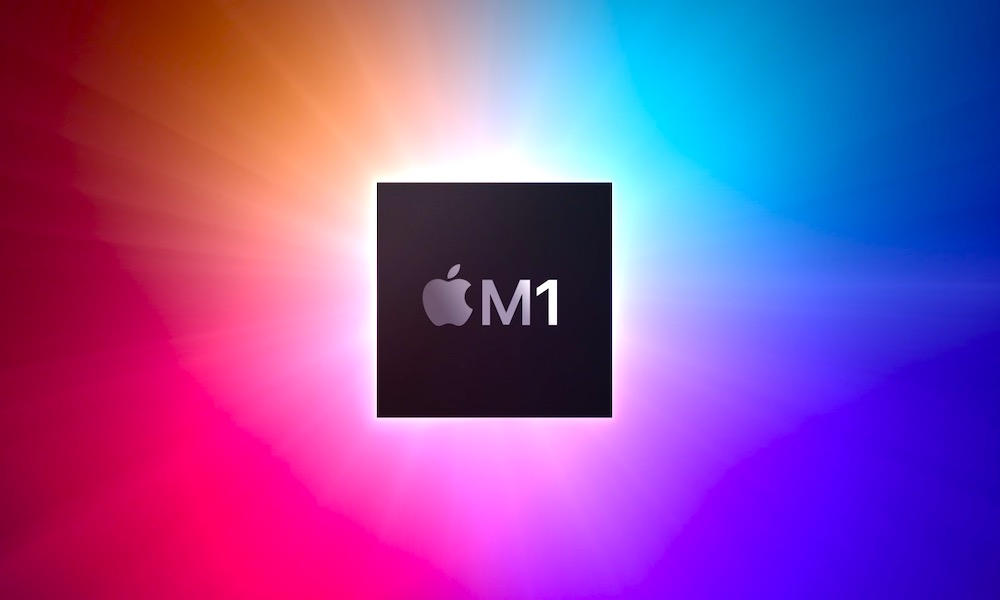Apple’s M1 MacBook Air Outperforms Every Other Mac Ever Made
 Credit: Apple
Credit: Apple
Toggle Dark Mode
When Apple unveiled its revolutionary new M1 Apple Silicon chip earlier this week, it offered up a lot of numbers to try to illustrate just how much faster its new first-party chip is than the Intel ones that came before, but it’s only now that the first benchmarks of Apple’s new Macs are beginning to appear that we can now put these numbers into some context — and frankly they’re nothing short of astonishing.
While the folks over at AnandTech already gave us an idea of what to expect based on their own performance tests on Apple’s A14 and the fact that on paper the new M1 strongly resembles what might otherwise be an A14X — the class of chip that Apple has traditionally used for its more powerful iPad Pro models. While AnandTech hasn’t yet had the opportunity to take apart the M1, it was able to do a deep dive based on the A14 found in the new iPad Air and iPhone 12 lineup, which already runs circles around just about every other chip on the market — and that’s the chip that’s running in an iPhone.
So the point that AnandTech makes is that the M1 can only be an order of magnitude better, and now some of the first benchmarks that have surfaced of Apple’s new Macs are supporting Apple’s claims that this is truly the fastest consumer-grade chip that has ever been made.
The new MacBook Air with the M1 chip scored a staggering 1732 in single-core and 7545 in multi-core tests using Geekbench 5.
To put that in perspective, Apple’s highest-end 16-inch MacBook Pro model — the one that packs in a 10th-generation Intel Core i9 CPU — only scores 1096 in the single-core and 6870 in the multi-core tests.
In other words, Apple’s entry-level MacBook Air now outperforms the most expensive 16-inch MacBook Pro you can buy.
It doesn’t stop there, however, as the new MacBook Air actually leaves Apple’s flagship 2019 Mac Pro in the dust at well — at least in terms of single-core performance; the base model of Mac Pro, which packs in a 3.5GHz 8-core Intel Xeon CPU, only scores 1024 in single-core performance benchmarks, although it notably does better for multi-core with a score of 7989, and of course, the Mac Pro jumps dramatically as you add more cores, with the maxed-out 28-core version coming in at a multi-core score of 18950.
What’s especially notable is that these tests were done with the fan-less MacBook Air, which will likely offer the lowest sustained performance of any M1-equipped Macs, since the Mac mini and MacBook Pro include more advanced cooling systems that can let the M1 run hotter, and therefore even faster, at least in terms of sustained workloads.
Not surprisingly, the M1 also outperforms the A14 chip, which provides Geekbench scores of 1584 and 3898 in an iPhone 12 Pro, or 1585 and 4647 on an iPad Air, although the single-core performance of an A14 actually does come much closer to the M1 than any of Intel’s chips.
The benchmarks also reveal that the M1 has a 3.2GHz base clock frequency, although we wouldn’t suggest reading too much into that, since you can’t compare clock frequencies across different chip architectures.
To be fair, however, the 16-inch MacBook Pro and Mac Pro still likely outperform the M1 MacBook Pro in a whole lot of other areas, thanks to their inclusion of high-power discrete GPUs, so these benchmarks shouldn’t be taken as a sign that an M1 MacBook Air would actually be better than an Intel i9 or Xeon Mac when it comes to tasks like video rendering or animation design, but they definitely show that the M1 packs in more horsepower for everyday tasks than any Intel chip can dream of.
In fact, it’s even more surprising when you consider that this new M1 chip is Apple’s entry-level model. The only Macs that include the new M1 chip are ones that previously capped out at 1.7GHz Intel Core i7 chips in their highest available configurations, so if these lowest-end Macs have already landed on the top of the performance charts, it’s both terrifying and exciting at the same time to think about the kind of power that an “M1X” will bring to the table when Apple is finally ready to unveil Apple Silicon versions of its higher-end 16-inch MacBook Pro and desktop iMacs.






